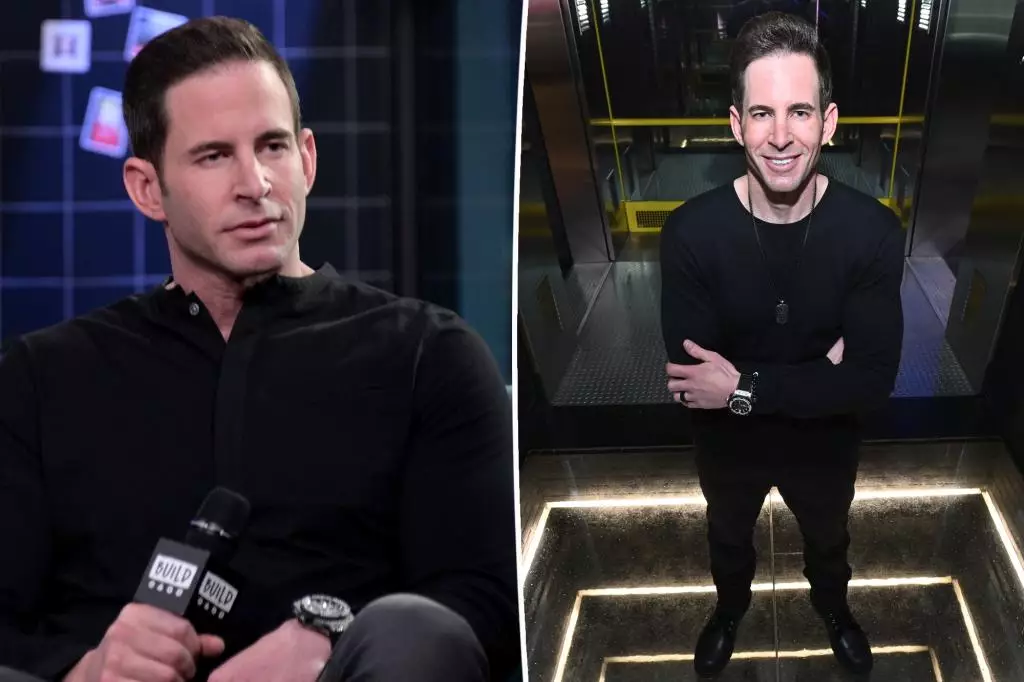The latest incident involving reality TV star Tarek El Moussa has placed a glaring spotlight on the intersection of fame and personal conduct. Known widely for his role in the popular series “Flip or Flop,” El Moussa allegedly engaged in a violent altercation on June 5 at the Palazzo in Las Vegas. This incident, involving physical aggression against an unknown man, raises not just eyebrows but deeper questions about the conduct expected from public figures and the ramifications of such behaviors on their careers and personal lives.
The Incident in Detail
According to reports, the confrontation erupted over a seemingly trivial matter—a bump at the roulette table. A man brushed against El Moussa’s father, which led to an escalating exchange of words. As the incident developed, it escalated into a physical confrontation where El Moussa intervened, portraying himself as a protector of his elderly father. Eyewitnesses state that the altercation turned particularly brutal, with El Moussa reportedly delivering multiple strikes to the man’s head, resulting in visible injuries. These details, captured on surveillance cameras, paint a picture of unchecked aggression that is troubling, especially for a figure in the public eye.
But what drives someone to react with such violence in a situation that could perhaps have been resolved through dialogue? The question lingers—did El Moussa act out of a legitimate instinct to defend, or was this an impulsive response fueled by the adrenaline of celebrity life?
The Consequences of High-Pressure Fame
El Moussa’s actions force us to consider the effects of fame as a pressure cooker, often amplifying emotional responses that might otherwise be managed in private life. The complexities of navigating public scrutiny while managing personal relationships may contribute to building up tensions that explode in moments like this. The relentless pursuit of maintaining a public persona can lead to situations where normal conflict resolution is thrown to the wayside. It is worth asking whether this incident reflects a larger trend among reality stars, who often find their every move dissected by media, pushing them to extremes.
In a world where public perception can shift on a dime, the repercussions of a single moment can ripple into an entire career. With representatives for El Moussa declining to comment amid the fallout, one wonders how this incident might alter not only his reputation but also the trajectory of his professional life.
The Reality of Reality TV Relationships
El Moussa’s relationship with his wife, Heather Rae Young, stands in stark contrast to the violent outburst. Young shared snippets of their family vacation on social media, creating a picture-perfect narrative filled with joy and gratitude. Yet this incident, which unfolded away from the cameras, starkly contradicts the idyllic portrayal that reality television often seeks to present. This dichotomy between public image and private behavior is a recurring theme that raises questions about the authenticity of relationships showcased on screen.
In an age where authenticity is highly valued by viewers, how does a violent altercation impact the perceived trustworthiness and relatability of the individuals involved? Young’s silence on the altercation in her social media posts is telling; it highlights an uncomfortable reality many celebrities face: the struggle to align their public and private selves amidst personal turmoil.
Broader Implications of Physical Violence
This incident is not just a tabloid headline; it echoes broader societal issues concerning violence and its normalization in media portrayals. For fans and viewers, witnessing such behavior can desensitize them to real issues surrounding conflict resolution and physical altercations. The glamorization of violence in reality TV contexts trivializes the serious implications of such actions, detracting from meaningful discussions about empathy, understanding, and peaceful conflict resolution.
As society continues to consume these narratives, it becomes imperative to critique the values being espoused. Are we inadvertently endorsing behaviors that we would shun in our everyday lives? The ripple effect of celebrity behavior has profound implications, shaping not only public discourse but also influencing how behaviors are perceived and normalized among fans, especially younger audiences who idolize these figures.
The unfolding drama surrounding Tarek El Moussa serves as a cautionary tale of the volatile mix of fame, aggression, and the often unseen consequences that follow, urging a reflection on the cultural narratives we engage with daily.

